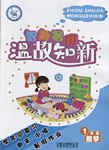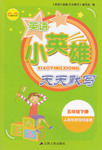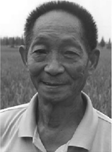题目内容
| |||||||||||||||||||||||||||||||||||||||||||||||||||||||||||||||||||||||||
解析:
(1) |
根据前两段可知,两万多网民提议,袁隆平应当是下一年的诺贝和平奖的得主。由此可知袁隆平深受许多网民的欢迎。 |
(2) |
作者在帖子中提到这两个曾经赢得诺贝和平奖的人,主要是通过介绍它们的贡献,让我们了解袁隆平也为了世界和平作出了同样的贡献。 |
(3) |
细节理解题。根据第四段可知,诺贝尔和平奖不仅仅是授给政治家或阻止战争的机构,也可授予那些解决问题,缩小贫穷差距的人。总之,不管是哪行哪业,只要为世界范围的和平作出巨大贡献的都有机会获得诺贝尔和平奖。 |
(4) |
根据这一段的意思可知qualified应该表示“有资格的;合格的”。 |
(5) |
根据记者在报道中所使用的修饰词汇可以看出他是支持网民的建议的。 |

 智趣暑假温故知新系列答案
智趣暑假温故知新系列答案 英语小英雄天天默写系列答案
英语小英雄天天默写系列答案
| |||||||||||||||||||||||||||||||||||||||||||||||||||||||||||
| |||||||||||||||||||||||||||||||||||||||||||||||||||||||||||
| |||||||||||||||||||||||||||||||||||||||||||||||||||||||||||
| |||||||||||||||||||||||||||||||||||||||||||||||||||||||||||||||||||||||||

 known for its dictionaries and English language teaching materials. Some readers have written in to ask us for the latest information on high quality books on English speaking, so here we introduce two texts that aim to improve spoken English fluency(流利).
known for its dictionaries and English language teaching materials. Some readers have written in to ask us for the latest information on high quality books on English speaking, so here we introduce two texts that aim to improve spoken English fluency(流利).